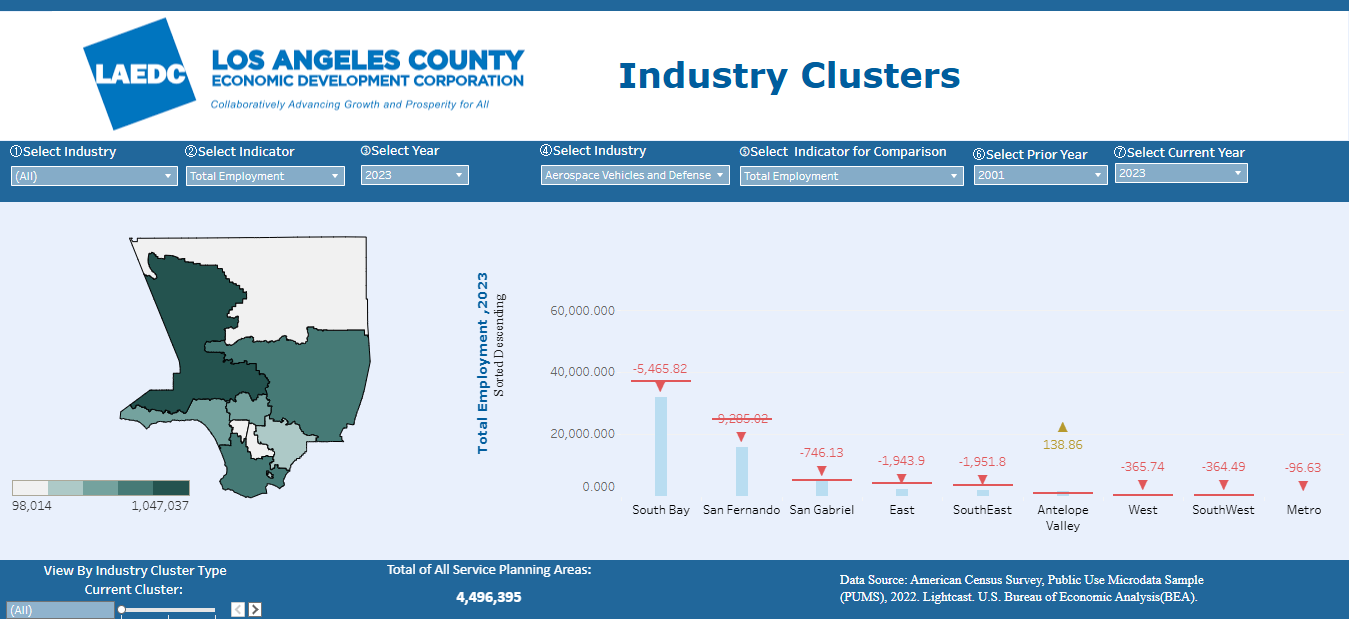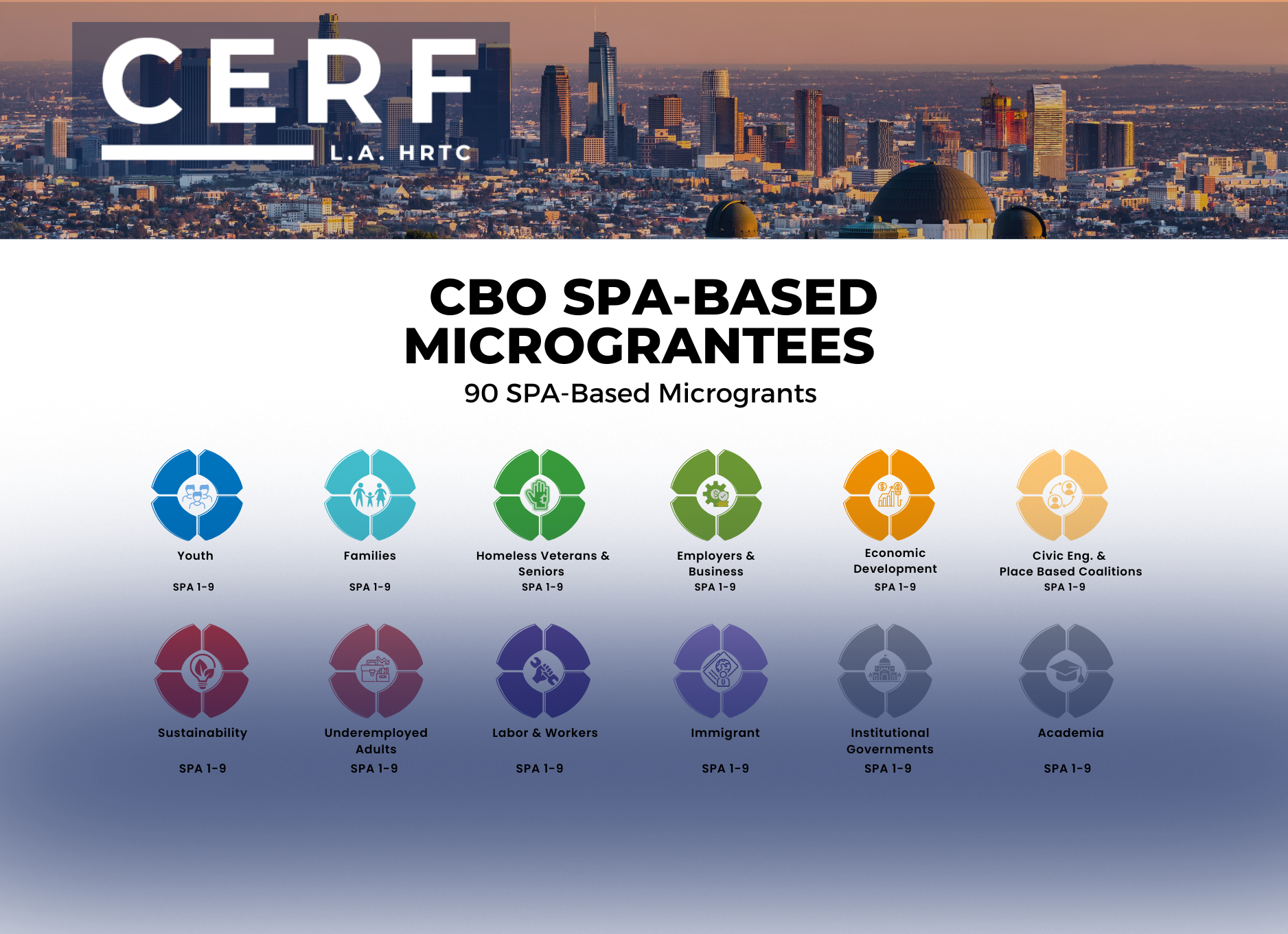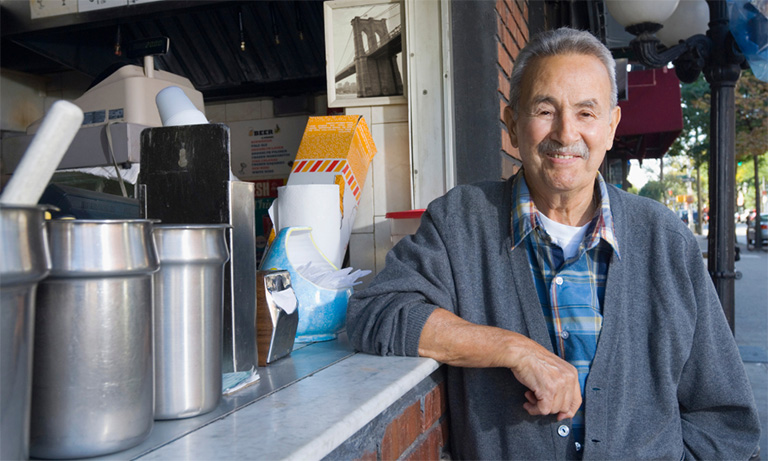Planning Phase
Bottom-Up, Inclusive Regional Planning
The Planning Phase of the California Jobs First initiative (previously known as the Community Economic Resilience Fund) engaged in an inclusive regional planning process that produced regional roadmaps for the Los Angeles region to bolster economic resiliency and increase access to quality jobs for those who traditionally have been left behind. With $5 million earmarked for the Los Angeles region's Planning Phase, the Los Angeles Collaborative incorporated perspectives from stakeholders such as labor, business, community groups, local governments, metropolitan planning organizations, economic development entities, education institutions, and other key groups in the region. The Regional Plan Pt 1 presents the region's stakeholders, assessments of the factors affecting the region's economic, environmental, and health conditions, and detailed economic and workforce analyses. The Regional Plan Pt 2, informed by the Regional Plan Pt 1, details regional and target-sector strategies that will lead to projects across the County that advance equity for disinvested communities, provide high-quality, accessible careers, and align with state climate goals.

Data Accountability Tool
A Data Accountability tool was developed by Beacon Economics, serving as a comprehensive resource for analyzing various data based on industry, occupation, wage, and education providers across Los Angeles County.
Empowering Growth and Collaboration:
The Outreach and Engagement Hub Structure was a pivotal force behind the California Jobs First - Los Angeles Collaborative program, encompassing 90 SPA-Based Subregional Tables, 12 Affinity Hub Leads, and 8 Table Partner Leads.
The Hub Structure engaged and connected with disinvested communities by spearheading an outreach initiative to gather their feedback, analyze their needs, and co-create strategies for economic development.

SPA-Based Subregional Tables
Ninety grassroots community organizations were funded to represent specific thematic areas within each Service Planning Area (SPA). This approach fostered regional diversity and a wide range of perspectives, contributing to an effective and inclusive planning process. By conducting outreach, engaging, and gathering data from constituents in local service planning areas, the Subregional Table Leads ensured that community lived experience is factored into the LA HRTC planning process.

Affinity Hub Leads
Twelve Affinity Hub Leads were funded to enhance representation for underrepresented subgroups among stakeholders. They convened and facilitated discussions, responded to data analysis, shared insights with other tables, provided resources for community participation, gathered feedback, and facilitated communication between stakeholders and the Steering Committee. Their role empowered underrepresented groups and ensured their influential voice in the decision-making process. Affinity Hub Leads held dual roles, operating within the Steering Committee while fulfilling their responsibilities in enhancing representation and facilitating community engagement. Although the Planning Phase has concluded, each Affinity Hub Lead representative continues to engage in impactful work in the Steering Committee today.
Table Partner Leads
Eight Table Partner Leads were pivotal in advancing the objectives of underrepresented populations within specific industry sectors that necessitate specialized attention in data gathering and comprehensive planning. Through the efforts of the Table Partner Leads, we aimed to pioneer green job opportunities and ensure that future industry sectors are built on equity, diversity, and inclusion principles. By collaborating with these partners, we developed a comprehensive Regional Economic Development Plan that fosters sustainable growth and prosperity for all members of our community.
Outreach and Engagement Funding Structure
Funding was made available to the Affinity and Subregional Tables to undertake the outreach and engagement responsibilities outlined in the proposal. The accompanying graphic displays the funding opportunities.
.png?width=2000&height=1449&name=CLICK%20TO%20VIEW%20(1).png)
Planning Phase Subcommittees
Behind the success of the Planning Phase were immense efforts by three subcommittees that worked tirelessly to connect Partners across the region, establish a governance structure for the LA Collaborative, and refine the research scopes for the Regional Plan Pt 1: The Outreach & Engagement, Research and Data, and Governance Committees.

-1.png?width=300&height=159&name=CAJF%20618X159%20(1)-1.png)
-1.png)

-1.png)
-1.png)